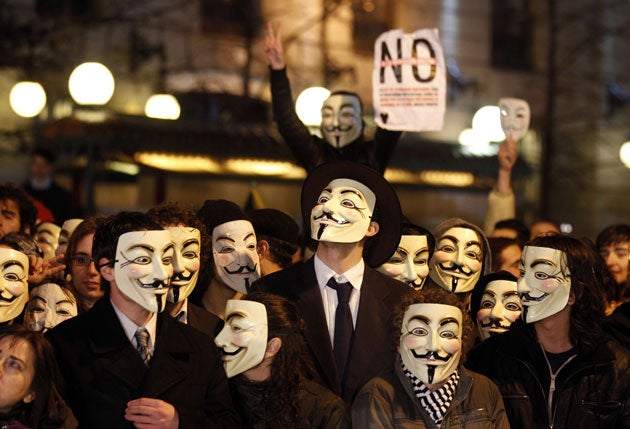Bonfire Night: We celebrate the dark and, with it, belief in renewal
Like birds summoned south, our senses are attuned to the failing light

Your support helps us to tell the story
From reproductive rights to climate change to Big Tech, The Independent is on the ground when the story is developing. Whether it's investigating the financials of Elon Musk's pro-Trump PAC or producing our latest documentary, 'The A Word', which shines a light on the American women fighting for reproductive rights, we know how important it is to parse out the facts from the messaging.
At such a critical moment in US history, we need reporters on the ground. Your donation allows us to keep sending journalists to speak to both sides of the story.
The Independent is trusted by Americans across the entire political spectrum. And unlike many other quality news outlets, we choose not to lock Americans out of our reporting and analysis with paywalls. We believe quality journalism should be available to everyone, paid for by those who can afford it.
Your support makes all the difference.Is Bonfire Night a lost tradition? The fires that were originally lit on 5 November 1605 to celebrate “Gunpowder Treason Day” and King James I’s survival, were echoes of much older rituals. The Celtic festival of Samhain – halfway between the autumnal equinox and the winter solstice – was a time for Druids to burn wicker forms with human sacrifices, as fictionalised in our own cult horror movie The Wicker Man. Even the word “bonfire” comes from “bone-fire” – although what was usually burnt were animal bones.
In his wonderful and timely new book, The Seasons: An Elegy for the Passing of the Year, Nick Groom has made a fascinating study of these lost traces of British lore. He notes that, historically, “Guy Riots” erupted on 5 November, promising a kind of anarchy when normal laws were temporarily abandoned. Even in the 1840s – when the day was still a national holiday – William Howitt recorded mayhem and “utter riot”, with guns and exploding rockets and “mobs of lads carrying round the image of Guy Faux”, shouting “A stick and stake/For King James’s sake”.
In fact, such celebrations are hardwired to our collective imaginations, an instinctive reaction to seasonal change, which make us suddenly aware of the power of nature, even in the cities in which most of us now live. Just as migrating birds are summoned south, so our senses are attuned to the failing light and a sinking sun. And as the clocks go back, we settle into shortening days in which we get up and come home in the dark. Sometimes, it never seems to get light at all. The Anglo-Saxons had a word for that eerie, other hour before sunrise or after sunfall: uht – a liminal, in-between time.
This past week, with high tides around five and six in the morning, I’ve been swimming in high seas under a black sky, with scudding clouds underlit by a half-crescent moon, peeling back to reveal the constellation Orion wheeling overhead. It might seem faintly insane, but, for me, it’s a direct connection to the changing year, implicit in an out-of-season beach. Meanwhile we head towards winter through tunnels of trees and falling leaves. We take comfort in that dying down, since, by definition, it proposes a renewal. I admit I romanticise. I blame it on my part-Irish, part-Viking ancestry. Maybe that’s why I like the cold, closed-in promise of a north European autumn.
The Catholic in me ought to balk at the fact that those Guy Fawkes figures we used to stuff like scarecrows ready to throw into the fire were signs of virulent anti-popish sentiment, reminders of a man who jumped off the scaffold to break his own neck rather than face drawing and quartering. But I remember the fifth of November as a fearful, exciting augury of winter: the smell of damp leaves and wood smoke, a primal fire rising to the sky, and rockets that fizzed in a brief, pathetic blaze of pink and green stars, leaving only their burnt-out sticks in the street in the cold light of day.
Philip Hoare’s latest book, ‘The Sea Inside’, is published by Fourth Estate.
Join our commenting forum
Join thought-provoking conversations, follow other Independent readers and see their replies
Comments